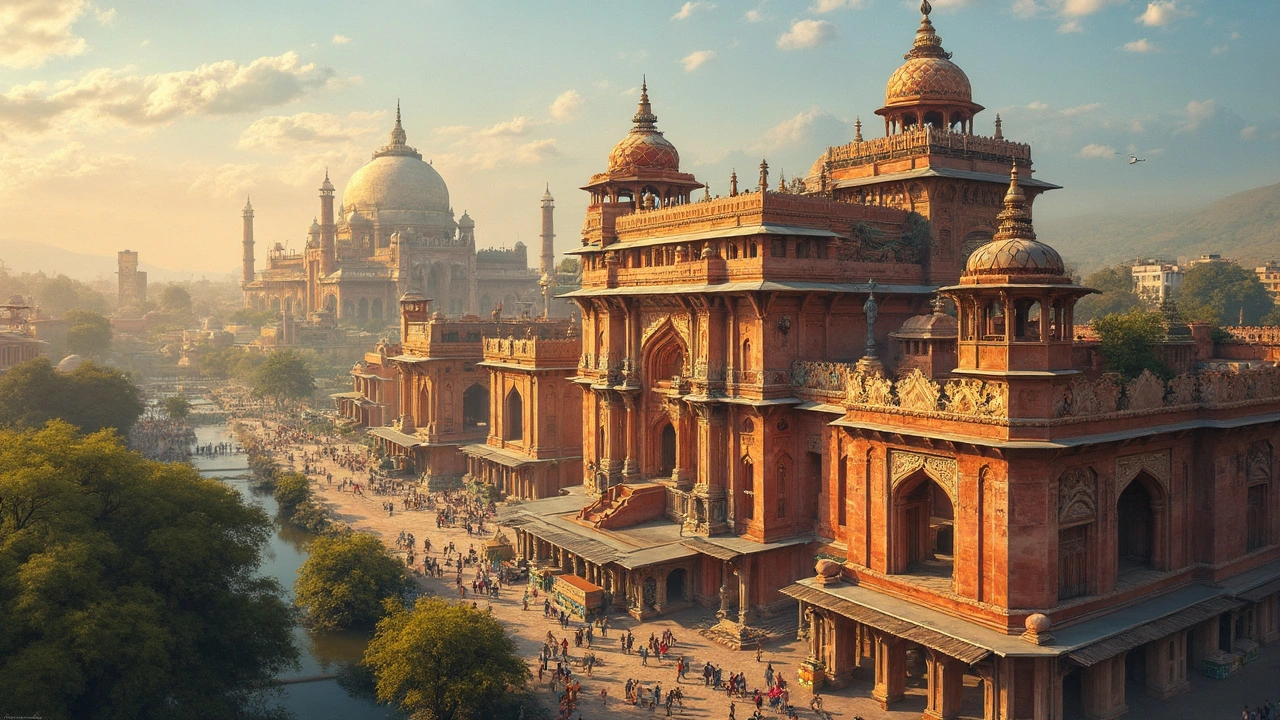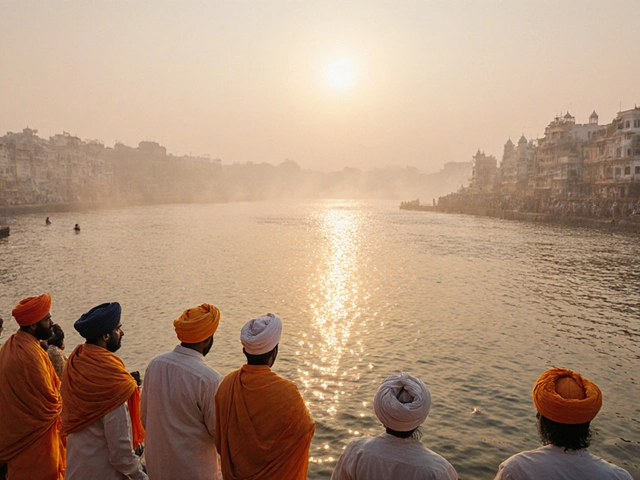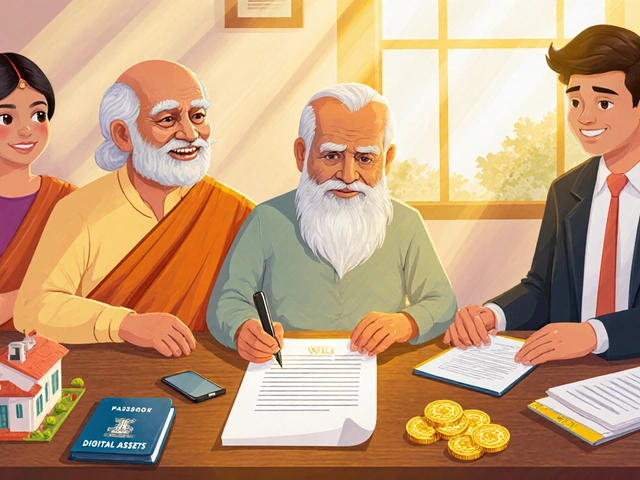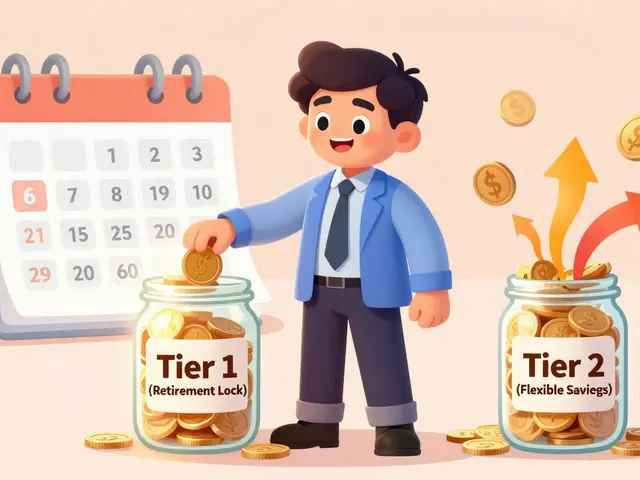Tracing the Historical Name of Uttar Pradesh
Unveiling the Old Identity of Uttar Pradesh
Ever wondered what Uttar Pradesh (UP) was called before it got its current name? It's like digging up old photo albums to see how things used to be. Once upon a time, this Indian state wasn’t known as UP but as the ‘United Provinces.’ Thinking about it, the name seems quite fancy, doesn’t it? This old name was more than just a title—it told the story of an era, a cultural and administrative coming together that shaped what UP is today.
Back in the 19th and early 20th centuries, the ‘United Provinces’ wasn’t just a place on a map but a buzzing hub of political and cultural activities. Post the British Raj and pre-independence, it was a region intertwined with debates, revolutions, and reforms, essentially serving as a microcosm of evolving India. Diving into its past feels like uncovering chapters of India’s national story—each page bustling with events that warranted the renaming of this robust state.
The Evolution Behind the Name
Why change a name that seemed to fancy? After India gained independence in 1947, an essential part of nation-building was renaming places to rejuvenate them with a fresh sense of identity. The name ‘Uttar Pradesh’ was officially adopted on January 24, 1950, symbolizing the birth of a new era. It translates to ‘Northern Province,’ pretty straightforward, right? This was a strategic move aligning with the newfound freedom and the wave of decolonization sweeping over the nation.
In the whirlwind of political change, the rechristening wasn’t merely about the name but about encapsulating the essence of the energetic new republic. It represented a shift from colonial overlays to indigenous narratives, reflecting how names can function as cultural mirrors of societal values. Prime movers like Jawaharlal Nehru, the first Prime Minister of India, and other leaders were key players in this transition phase, aiming for unity while fostering regional pride.

Cultural and Historical Insights
Have you ever thought about how a name can hold so much cultural heritage? When you think of Uttar Pradesh today, what do you visualize? Perhaps the majestic Taj Mahal, the spiritual ebb and flow of Varanasi, or even the bustling streets of Lucknow—each of these venues echoes the richness that the term ‘United Provinces’ once encapsulated but now continues under a new banner.
The evolving name reflects the mosaic of ethnicities, languages, and religions blending seamlessly or clashing noisily across history’s canvas. Key historical periods, like the Mughal Empire’s reign and the British influence, layer this vibrant potpourri of cultures that existed and still flourish. It’s intriguing to note how these narratives influence everything from cuisine to architecture, enriching UP’s character and promoting its unique identity worldwide.
The Impact and Reflection of Change
Changing a name might seem like a brushstroke on the canvas, but it leaves an indelible mark on a region’s identity and governance. While discussing Uttar Pradesh, reflecting on its past as the United Provinces prompts introspection on socio-political unity within diversity. It demonstrates how a state, much like an individual, evolves under external narratives while nurturing its internal sentiments.
This transformation wasn’t without its challenges and criticisms. Skeptics questioned the necessity and potential over-politicization of cultural symbols. However, history testifies that adopting ‘Uttar Pradesh’ resonated deeply with common folk’s aspirations, representing both hope and renewal as India stepped into independence. A small shift in terminology resulted in extensive changes in administration, reflecting regional uniqueness while maintaining national uniformity.
Now when people think of UP, they’re not only envisioning a geographical area but appreciating a saga that comes alive with each breath and beat of its vibrant culture, taking pride in a name echoing through India’s collective consciousness.





10 Comments
OONAGH Ffrench
July 17 2025The transformation of the name from United Provinces to Uttar Pradesh indeed encapsulates a fascinating era in Indian history. It reflects more than just a change in nomenclature—it signifies the socio-political upheavals and cultural assertions of a nation on the cusp of independence.
One cannot help but appreciate the depth that historical names carry; they're like linguistic relics of bygone eras. The United Provinces, as a term, evokes the colonial administrative framework, while 'Uttar Pradesh' translates to 'Northern Province' in Hindi, highlighting a reclamation of indigenous identity.
It's an intriguing lens to study how names embody power dynamics and cultural narratives. It makes me wonder about other regions with similar transitions that remain underexplored. Surely, there is a pattern of renaming that aligns with political shifts globally.
Furthermore, the article's mention of key historical figures influencing the state's identity invites a deeper dive into their contributions beyond mere titular changes. Did these leaders shape the socio-economic fabric as effectively as they reshaped names?
Overall, this topic is a thoughtful reminder that names hold stories, sometimes mirroring the complexities of identity and governance.
Wilda Mcgee
July 19 2025I absolutely adore how the historical winding path of Uttar Pradesh’s name is woven here! It’s like peeling back layers of a vibrant tapestry showing the colorful evolution of this region’s identity.
The shift from 'United Provinces' — which sounds so rigid and colonial — to 'Uttar Pradesh' feels like a joyful reclaiming of cultural pride and linguistic heritage. It’s like a fresh breeze sweeping in clarity and purpose, don't you think?
And what fascinates me is how these changes aren’t mere trivia — they mirror the hopes, struggles, and vision of people who steered the course through tumultuous historical tides.
I'd be thrilled to explore how these figures balanced preserving traditions with embracing modernity. Anybody else feel this story deserves more spotlight?
Chris Atkins
July 22 2025Cool post! I’ve always thought the renaming from United Provinces to Uttar Pradesh was pretty symbolic of India’s shift away from British rule. It kinda feels like the region took back its own story bit by bit.
The article makes me think about how names carry history not just in words, but in what they represent for identity and power.
Does anyone know more about the key historical figures mentioned here? Were they active in politics, culture, or both?
Also, it’s neat that Uttar Pradesh literally means ‘Northern Province’ emphasizing geography but also culture in a way.
Names aren't just labels—they're stories, right?
Jen Becker
July 24 2025Ugh, historical name changes always feel so overblown to me. United Provinces, Uttar Pradesh—call it what you want, it’s still the same place with the same issues.
People focus too much on names and history like that’s going to change the ground realities.
Honestly, I don't see the point in romanticizing colonial-era names or pretending a simple name swap fixes the underlying problems faced by the folks there.
But hey, if you’re into that kind of detailed history stuff, carry on. Just ain’t my vibe.
Ryan Toporowski
July 26 2025Hey, I get what you’re saying, but I think the history and symbolism behind these names actually matters more than we realize :)
They shape identity, collective memory, and even pride among communities.
Plus, understanding the transformation of a state’s name gives insight into its cultural journey and political struggles.
It’s less a fix to issues and more a reminder of the long road and many hands that shaped the place.
Also, can’t help but chuckle imagining all the folks back then debating over what to call their homeland. Probably quite the drama!
Samuel Bennett
July 28 2025Look, the article glosses over some key details about the mechanics of the name change process that deserve scrutiny.
It’s not just cultural evolution; it’s political maneuvering masked as cultural pride.
How much of this was influenced by British administrative strategy to keep control? How much was genuine local initiative?
These nuances get buried behind feel-good narratives but matter immensely if you want the full story.
Anyone else feels like history is often sanitized for consumption?
Rob D
July 30 2025Honestly, the 'United Provinces' was a colonial construct meant to divide and rule; the renaming to Uttar Pradesh was not just symbolic but necessary for national pride.
Any lingering attachment to the old name misses the point that we need to embrace an identity rooted in our own culture and language.
I’m delighted this article sheds light on figures who actually stood for that transformation—it’s about reclaiming our heritage.
Names aren’t just words; they’re banners of sovereignty and cultural rebirth.
Glad this perspective is getting the spotlight it deserves.
Franklin Hooper
August 1 2025One thing I find irksome is how casually these articles treat the role of language politics in these name changes.
Name shifts like from United Provinces to Uttar Pradesh were far more than symbolic—they represent linguistic dominance assertions, sometimes sidelining minority dialects and cultures.
Makes me wonder whose narratives get left out in these celebrations.
Furthermore, there’s a tendency to paint all historical figures involved with a broad brush of heroism without critical examination.
Jess Ciro
August 3 2025Wow, the layers here are wild. On one hand, you have history that’s romanticized. On the other, severe political control that shaped even the language spoken.
Honestly, I think the 'United Provinces' sticker was just a colonial trick to keep folks divided enough but not too much to revolt. Then the 'Uttar Pradesh' moniker comes like a band-aid.
Does anyone else feel we’re still wearing band-aids today in different forms?
saravana kumar
August 5 2025As someone from India, I can say that the name Uttar Pradesh holds a lot more than administrative significance. It’s deeply tied to our identity, history, and the ethos of the land.
United Provinces always sounded distant, almost artificial, whereas Uttar Pradesh resonates more intimately with the people.
This article is a great intro, but to truly appreciate it, one must delve into the local cultures, languages, and folklores that breathe life into the state's identity beyond just the historical labels.
Names are important, but lived experience and culture are what make a place truly unforgettable.